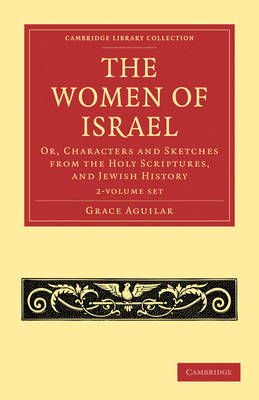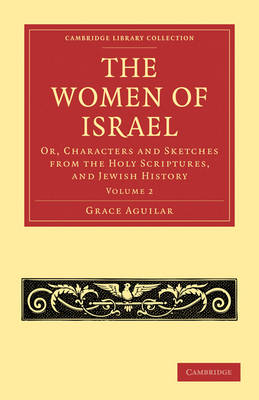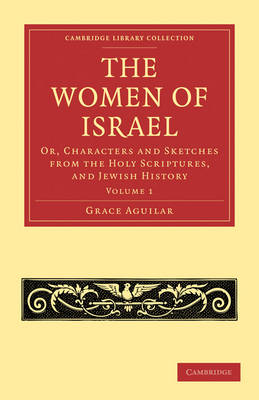Cambridge Library Collection - Religion
3 total works
Grace Aguilar (1818-1847), a prolific nineteenth-century novelist and Jewish historian of Sephardic descent, was better known for her works of fiction, but in this 1845 publication she addresses Jewish history from a female perspective. These two volumes consist of a series of biographical essays on Old Testament, Talmudic and modern Jewish women. Aguilar identifies a need for more female biography of scripture, postulating a continuity between the biblical matriarchs and the Jewish women of her generation. Addressing a female readership, Aguilar writes in a didactic and highly evangelical tone characteristic of the period, using her historical discussion to argue for the emancipation of Jews, particularly Jewish women, who should also have full access to all Jewish religious texts. For more information on this author, see http://orlando.cambridge.org/public/svPeople?person_id=aguigr
Grace Aguilar (1818–1847), a prolific nineteenth-century novelist and Jewish historian of Sephardic descent, was better known for her works of fiction, but in this 1845 publication she addresses Jewish history from a female perspective. These two volumes consist of a series of biographical essays on Old Testament, Talmudic and modern Jewish women. Aguilar identifies a need for more female biography of scripture, postulating a continuity between the biblical matriarchs and the Jewish women of her generation. Addressing a female readership, Aguilar writes in a didactic and highly evangelical tone characteristic of the period, using her historical discussion to argue for the emancipation of Jews, particularly Jewish women, who should also have full access to all Jewish religious texts. This second volume focuses on Aguilar's latter four periods of history. For more information on this author, see http://orlando.cambridge.org/public/svPeople?person_id=aguigr
Grace Aguilar (1818–1847), a prolific nineteenth-century novelist and Jewish historian of Sephardic descent, was known for her works of fiction, but in this 1845 publication she addresses Jewish history from a female perspective. These two volumes consist of a series of biographical essays on Old Testament, Talmudic and modern Jewish women. Aguilar identifies a need for more female biography of scripture, postulating a continuity between the biblical matriarchs and the Jewish women of her generation. Addressing a female readership, Aguilar writes in a didactic and highly evangelical tone characteristic of the period, using her discussion to argue for the emancipation of Jews, particularly Jewish women, who should also have access to all Jewish religious texts. The Women of Israel is divided into seven historical periods, and this first volume deals with the first three. For more information on this author, see http://orlando.cambridge.org/public/svPeople?person_id=aguigr


